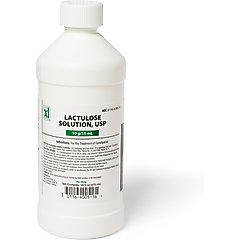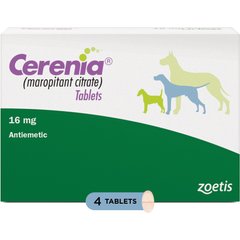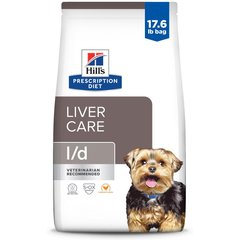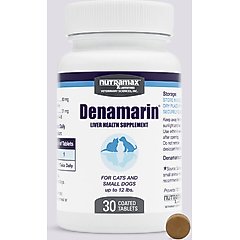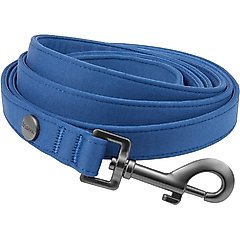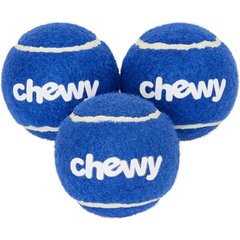What Is Liver Disease in Dogs? What Are the Signs?

Photo by gollykim/E+ via Getty Images
Liver disease in dogs happens when the liver becomes inflamed or damaged and can no longer function normally. It’s more common than pet parents might think; and while it can be serious, it’s also often manageable with the right care.
In many cases, early detection and treatment can slow the progression of the disease, ease your dog’s symptoms, and help your pup live a longer, healthier life. Here’s what to know about the disease, including signs, treatment, prevention, and more.
What Is Liver Disease in Dogs?
The liver is a vital organ that keeps your dog’s body running smoothly. Some functions of the liver include:
- Helping with digestion
- Storing nutrients
- Detoxifying harmful substances
- Supporting the immune system
- Metabolizing medications
- Managing blood sugar levels
In simple terms, liver disease is any condition that prevents the liver from functioning properly. It can be chronic (meaning the liver becomes damaged over a long period of time) or acute (meaning the disease comes on suddenly and requires more immediate care).
While “liver disease” is a general term, there are several specific types, including:
Chronic Hepatitis
Long-term inflammation that leads to liver cell damage and scarring, hepatitis can be caused by infectious agents (such as viruses), toxins, certain medications, or autoimmune responses, according to Bethany Hsia, DVM, co-founder of CodaPet in Clovis, California.
Acute Liver Failure
Liver failure in dogs is sudden, severe liver damage, often caused by toxin exposure or infections.
Cirrhosis
Cirrhosis is progressive liver scarring that can develop when there has been undetected, long-term (months to years) inflammation of the liver from a variety of causes, including hepatitis.
With cirrhosis, the liver is not functioning well—it’s a thick piece of leathery scar tissue instead of a spongy, soft tissue.
As the liver becomes increasingly scarred and damaged, it can lead to complications like portal hypertension (high blood pressure in the vein that carries blood from the organs to your liver) and liver failure, Dr. Hsia adds.
Wilson’s Disease (Copper Storage Disease)
Copper storage disease in dogs is a genetic condition where copper accumulates in the liver, causing damage. Wilson’s disease is common in breeds like Bedlington Terriers and Dobermans.
Liver Tumors
Benign and malignant tumors can develop in a dog’s liver. They can develop from liver cells themselves (called hepatocellular carcinoma) or from metastasis from other body parts, explains Dr. Hsia.
Portosystemic Shunts
Most commonly, liver shunts in dogs are due to birth defects (congenital) in which blood bypasses the liver, limiting its ability to detoxify. It’s more common in puppies and small breeds, says Samuel Varon, DVM, owner of Broadway Veterinary Hospital in Sacramento, California.
In some cases, liver shunts (acquired) can form in older dogs as a result of illness.
What Are the Symptoms of Liver Disease in Dogs?
Signs of liver problems in dogs can be subtle, especially at first, which is why it’s important to know what to watch for. They’re also dependent on the type of liver disease.
Common dog liver disease symptoms include:
- Loss of appetite
- Vomiting or diarrhea
- Weight loss
- Increased thirst and urination
- Lethargy or weakness
- Jaundice (yellowing of the skin, gums, or eyes)
- Swollen abdomen due to fluid buildup (clinically called ascites)
- Disorientation or behavior changes
- Seizures (in advanced cases)
- Blood clotting problems
What Causes Liver Disease in Dogs?
There’s no single cause of liver disease in dogs. It can develop for many reasons, but some of the most common causes include:
- Infections: Several types of infections, including viral (canine hepatitis), bacterial (leptospirosis), coccidioidomycosis, histoplasmosis, and parasitic (toxoplasmosis, leishmaniasis infections can cause liver disease.
- Toxin exposure: Toxins—like medications, plants, or xylitol—can damage the liver over time or cause an acute injury that needs immediate veterinary attention.
- Internal issues: Internal diseases, like diabetes and overactive adrenal glands (Cushing’s disease), can negatively affect detoxification and can lead to the accumulation of abnormal substances in the liver, according to Dr. Hsia.
- Genetics: Genetics can make certain breeds, like Labrador Retrievers, Cocker Spaniels, and Terriers, more likely to develop liver issues. Some dogs are also born with congenital conditions, like liver shunts, according to Dr. Varon.
- Obesity: Being overweight can increase the risk of liver inflammation. Excess body fat may contribute to metabolic changes, making it harder for the organ to function properly.
- Aging: Liver function can naturally decline as a dog gets older. Over time, the liver may become less efficient at filtering toxins and repairing damage, which can increase the risk of disease, says Dr. Varon.
How Do Vets Treat Liver Disease in Dogs?
Treatment for liver disease is a two-step process. First, your veterinarian will do a checkup and some tests to diagnose the condition. This will usually be a combination of the following:
- Physical examination: Your vet will start with a hands-on exam, checking for signs like jaundice, abdominal swelling, or pain. They may also feel for an enlarged liver or other abnormalities.
- Blood work: A serum chemistry panel can help assess your dog’s liver enzymes and function.
- Ultrasound or X-ray imaging: Ultrasounds or X-rays can help identify liver size, shape, and potential masses or shunts, according to Dr. Varon.
- Biopsies: Sometimes biopsies are recommended to examine tissue samples for abnormalities, says Dr. Hsia. Biopsies can also help determine the exact type of liver disease.
Once the type of liver disease is identified, your vet will recommend a treatment plan that may involve:
- Medications: Treatment may include lactulose to reduce toxins, liver supplements for liver healing support, antibiotics for infections, or other medications depending on the underlying cause.
- Specialized diet: In addition to medication, your vet will likely suggest dietary changes. That might mean a therapeutic liver diet containing controlled levels of highly digestible protein, lower levels of copper, and higher in antioxidants, according to Dr. Varon.
- Supportive care: IV fluids can keep your dog hydrated, while anti-nausea medications, like Cerenia, can help with symptom management.
- Surgery: In severe cases, Dr. Hsia says surgery may be recommended to fix anatomical issues like shunts or to remove tumors.
Recommended Products
How Can I Help Manage My Dog’s Liver Disease at Home?
If your dog has liver disease, working closely with your veterinarian is key. There are additional ways you can support your dog’s liver health at home.
Liver Supportive Diets
A veterinary-prescribed liver diet, like Hill’s Prescription Diet l/d Liver Care, can be an effective way to support your dog’s liver function. These diets are designed with high-quality proteins, low copper content (to minimize toxic buildup in the liver), and added antioxidants (which provide immune support) to reduce strain on the liver and aid in recovery.
Recommended Product
Targeted Liver Supplements
Liver-supportive supplements—like Nutramax Denamarin, which contains SAMe and silybin—can help promote liver health. If you’re exploring how to treat liver disease in dogs naturally, supplements may be one option to discuss with your vet.
Recommended Product
Maintain a Healthy Weight
Obesity can put extra stress on your dog’s liver. Keep your dog at a healthy weight by exercising them regularly and controlling their portions.
Recommended Products
Avoid Toxins
Keep household cleaners, medications, poisonous plants like sago palms, and toxic foods like grapes, onions, and xylitol away from your dogs. Even small amounts can be dangerous.
Routine Monitoring
Regular checkups and blood tests can help your vet keep an eye on things and make changes to your dog’s treatment plan, if needed.
How Can I Prevent Liver Disease in My Dog?
While you may not be able to completely prevent liver disease, you can reduce your dog’s risk. Dr. Hsia recommends:
- Regular veterinary checkups for early detection
- Feeding your dog a healthy, balanced diet suitable for their size and breed
- Maintaining your dog’s weight with appropriate portion sizes and regular exercise
- Avoiding harmful substances, like certain medications, plants, and toxic foods
- Keeping vaccinations up to date to prevent infectious diseases that could affect the liver
FAQs About Liver Disease in Dogs
Q: Is liver disease curable in dogs?
A: Not always. Some liver conditions may be managed effectively with treatment, while others may progress despite intervention, according to Dr. Hsia. The chance of survival depends on the specific type of liver disease and how early it is treated.
Q: How long can a dog live with liver disease?
A: It depends on the type of liver disease and severity. Some dogs may live several years with proper management, while others may have a shorter lifespan (just a few months), if diagnosed late or if aggressive forms are present, says Dr. Hsia. Regular veterinary care plays a crucial role in extending life expectancy.
Q: Is liver disease painful for dogs?
A: Liver disease isn’t always painful, especially in the early stages. However, as the disease progresses, your dog may show more signs of discomfort, like vomiting or lethargy. If you think your dog is in pain, talk to your vet about making them more comfortable.
Attributions
This content was medically reviewed by Molly Price, DVM, Chewy veterinarian.

